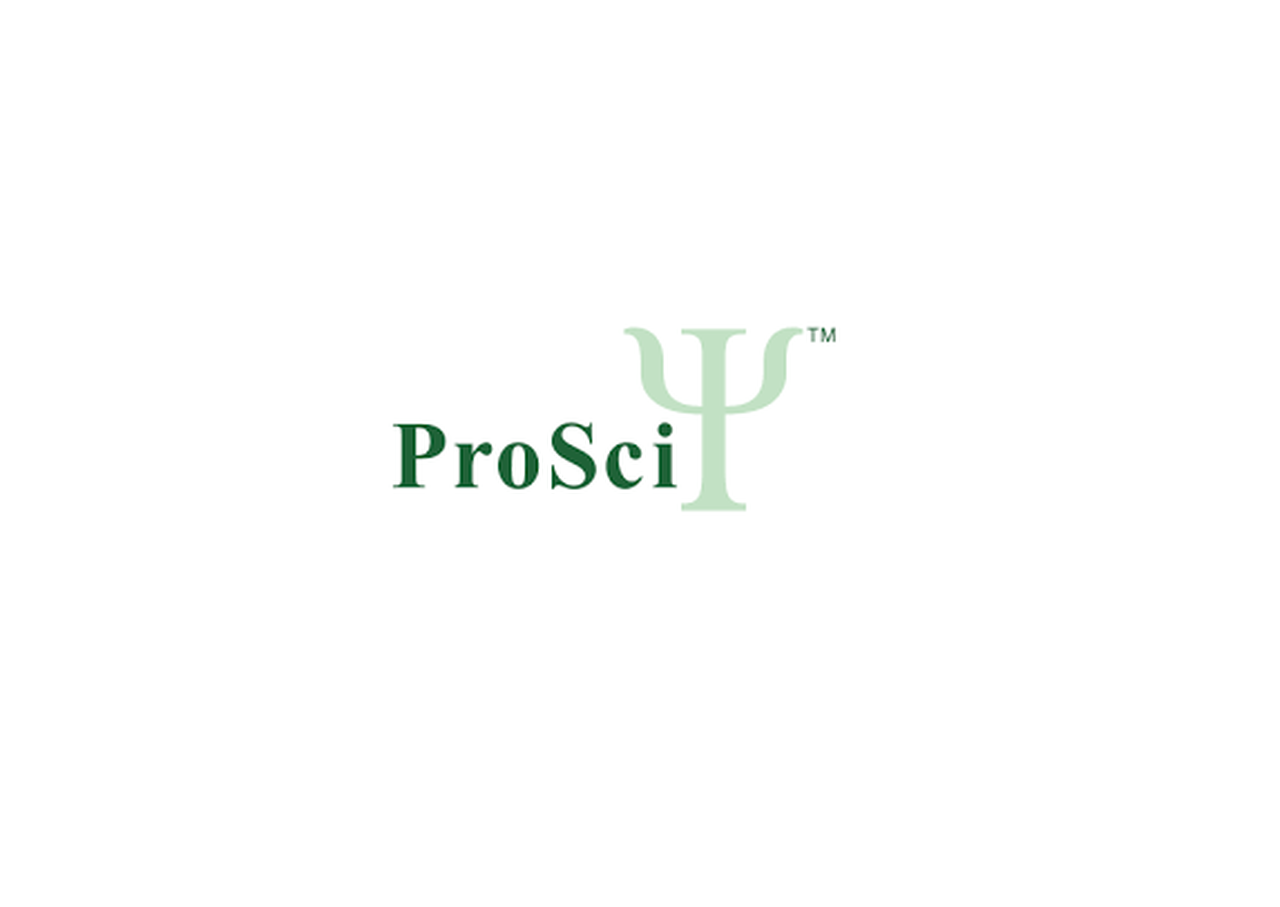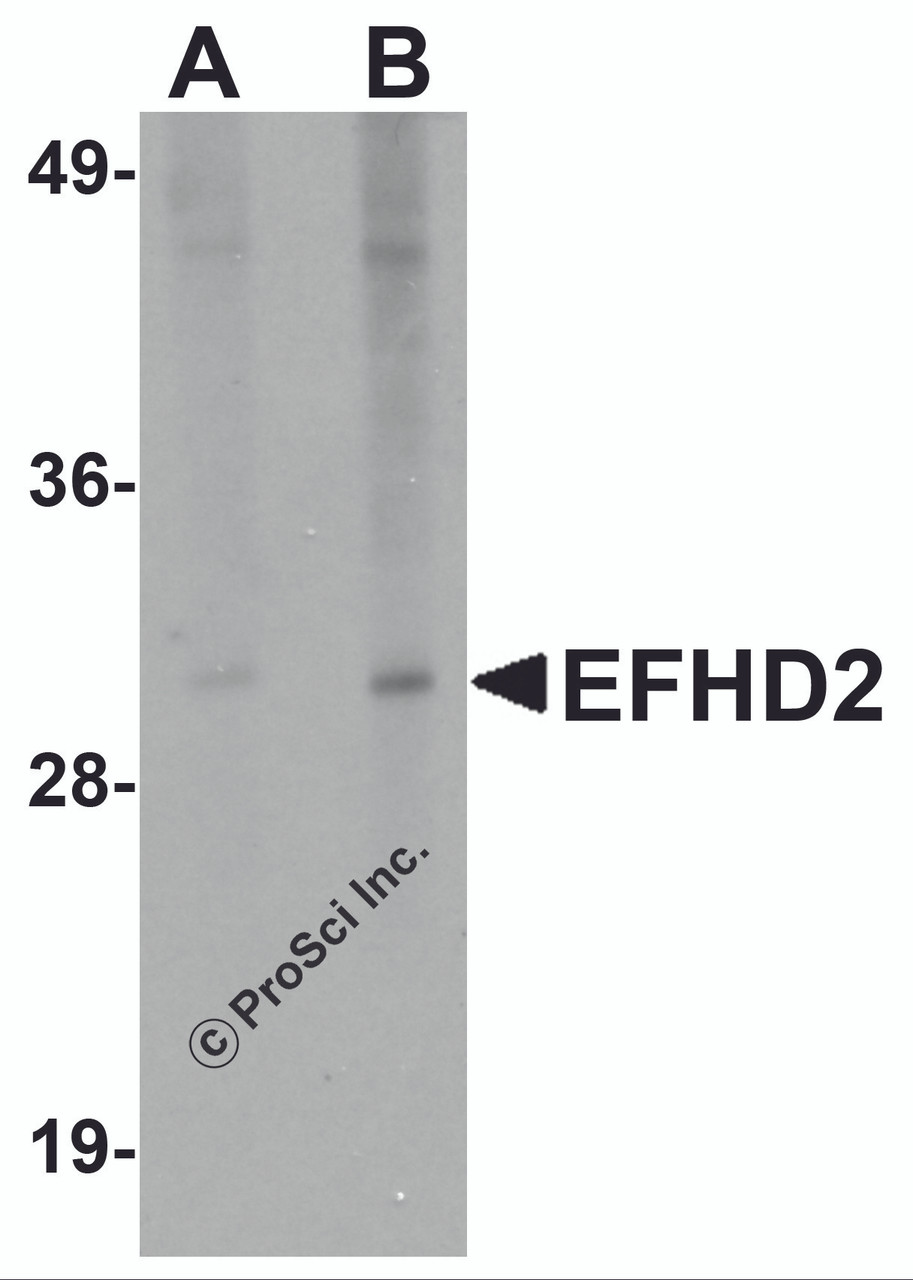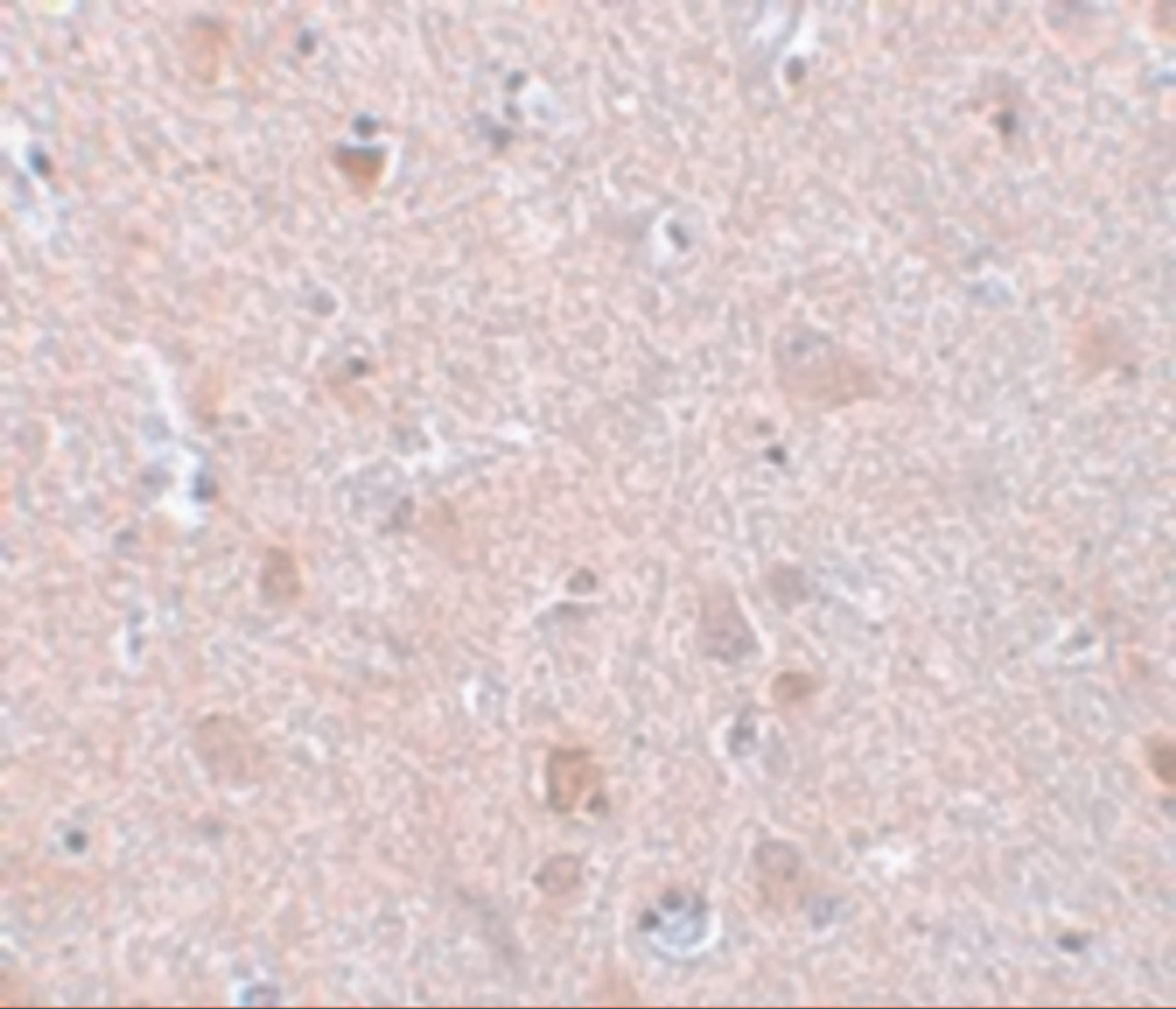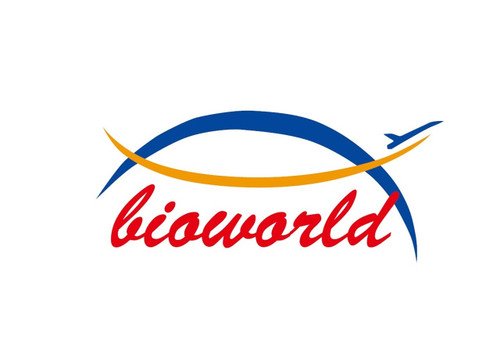Product Description
EFHD2 Antibody | 5657 | ProSci
Host: Rabbit
Reactivity: Human, Mouse, Rat
Homology: N/A
Immunogen: EFHD2 antibody was raised against a 16 amino acid synthetic peptide near the amino terminus of human EFHD2.
The immunogen is located within the first 50 amino acids of EFHD2.
Research Area: Apoptosis
Tested Application: E, WB, IHC-P, IF
Application: EFHD2 antibody can be used for detection of EFHD2 by Western blot at 1 - 2 μg/mL. Antibody can also be used for immunohistochemistry starting at 5 μg/mL. For immunofluorescence start at 20 μg/mL.
Antibody validated: Western Blot in mouse samples; Immunohistochemistry in human samples and Immunofluorescence in human samples. All other applications and species not yet tested.
Specificiy: N/A
Positive Control 1: Cat. No. 1403 - Mouse Brain Tissue Lysate
Positive Control 2: Cat. No. 10-301 - Human Brain Tissue Slide
Positive Control 3: N/A
Positive Control 4: N/A
Positive Control 5: N/A
Positive Control 6: N/A
Molecular Weight: N/A
Validation: N/A
Isoform: N/A
Purification: EFHD2 Antibody is affinity chromatography purified via peptide column.
Clonality: Polyclonal
Clone: N/A
Isotype: IgG
Conjugate: Unconjugated
Physical State: Liquid
Buffer: EFHD2 Antibody is supplied in PBS containing 0.02% sodium azide.
Concentration: 1 mg/mL
Storage Condition: EFHD2 antibody can be stored at 4˚C for three months and -20˚C, stable for up to one year. As with all antibodies care should be taken to avoid repeated freeze thaw cycles. Antibodies should not be exposed to prolonged high temperatures.
Alternate Name: EFHD2 Antibody: SWS1, SWS1, EF-hand domain-containing protein D2, Swiprosin-1
User Note: Optimal dilutions for each application to be determined by the researcher.
BACKGROUND: EFHD2 Antibody: EFHD2, also known as Swiprosin-1 or SWS1, is an EF-hand and coiled-coil-containing adaptor protein that plays a role in lymphocyte physiology. EFHD2 exhibits the highest expression in CD8+ T cells and immature B cells. It provides a membrane scaffold that is required for the Syk-, SLP-65-, and PLCgamma2-dependent B-cell receptor (BCR) -induced calcium flux. EFHD2 may also regulate BCR-induced immature and primary B-cell apoptosis. It controls spontaneous apoptosis through the regulation of BCL2L1 abundance. Also, EFHD2 plays a role as negative regulator of the canonical NF-κB-activating branch.
 Euro
Euro
 USD
USD
 British Pound
British Pound
 NULL
NULL
















